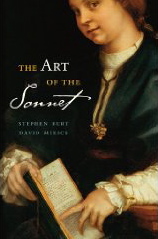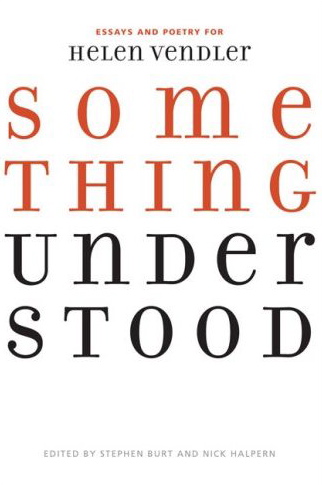No, I haven’t stopped blogging, nor have I been thrown into a semi-permanent pit of despair by the paralysis in Washington the Democratic Party the structural impediments to government– to any government at all– created mostly by the filibuster. Perhaps we’re doomed. But literature proceeds; so does lit-blogging.
For example, I see that Sina Queyras, who writes poems I like and who compiled one of my favorite contemporary anthologies, has started blogging at Harriet. So has Craig Santos Perez, whose book about Guam I liked. (I’m not sure if he’d want me to say “about,” though unlike Silliman, I do think poems are about things.) There’s something antithetical to the literary itself about blogging as such, since the former aspires to condensation and lastingness (for me, fading coal notwithstanding) and the latter to immediate, clear response: but in a time when other kinds of reviewing are (to put it quietly) under the weather, thoughtful blogging should be praised.
What else should be praised? The new fables, or prose works, or something (I don’t think they’re prose poems) by Craig Teicher. It’s called Cradle Book, and the first two sections (of three) are more like Kafka’s parables and anecdotes than any short prose I’ve read that’s not actually by Kafka or maybe by Lydia Davis. They are bleak, they have the legato arcs and the diminished minor chords of adult life, they are elegant, they should be read. By you, if you can.
Also recommended: that first book of prose poems by Alison Benis White, in retrospect perhaps the first book of the year; this superb collection of prose (not poems) by J. Robert Lennon, which will form one pillar of an essay about the difference between “prose” and prose poems if I ever get around to writing it (maybe this fall); and the Bikini Kill blog. If this band changed your life, tell them why. I might (I haven’t yet).
I have been writing reviews: of Samuel Menashe in the new TLS (review itself not online, sorry), of Mark Bibbins in the irreplaceable Cold Front.
And poems. When I figure out what the heck to call the next collection of poems, I’ll tell you; you can hear a couple of the new works (they are short, and some of them rhyme) at the Fordham event on Feb. 25, where I read with Eamon Grennan. Turns out the event’s on Fordham’s Lincoln Center campus: till recently I thought it would be in the Bronx.








